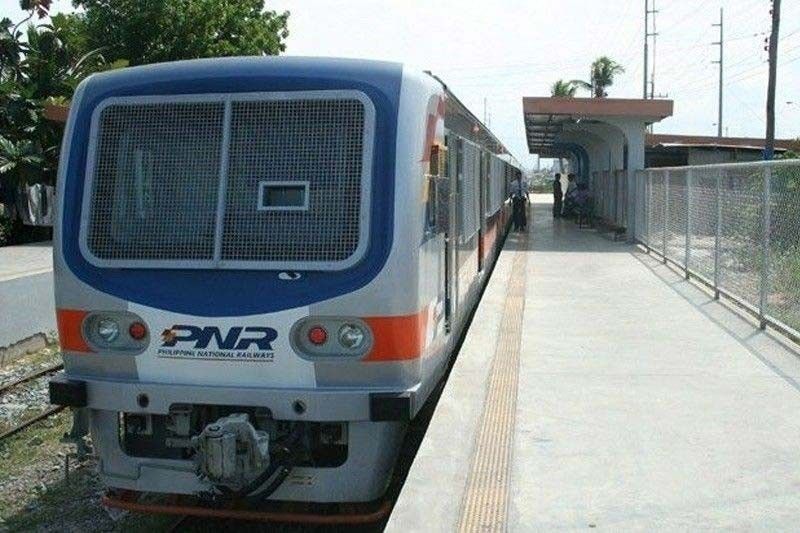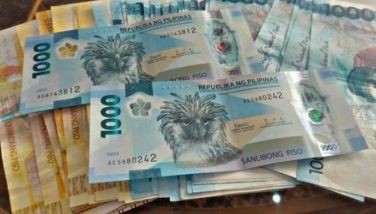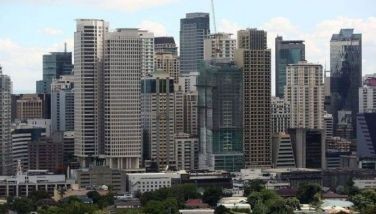Multilateral loans eyed for revival of Bicol railway

MANILA, Philippines — The Philippines may once again turn to multilateral institutions for financing, this time to pursue the P175-billion revival of the Bicol Express, a project that was originally pitched by the government to China.
The STAR learned from multiple sources that the Philippines may likely end up borrowing from the Asian Development Bank (ADB) and Asian Infrastructure Investment Bank (AIIB) to rebuild the Bicol Express through the Philippine National Railways (PNR) South Long Haul.
If this funding arrangement is taken, sources said the government has two options on how it can proceed with the project.
First, the Philippines can split the project cost between the ADB and AIIB, similar to how it plans to fund another rail project, the Metro Rail Transit Line 4. The government is seeking $1 billion from the ADB and $537.4 million from the AIIB to put up the MRT-4.
Otherwise, the government can obtain all financing from the AIIB, but the loans will be issued in tranches. A source said the AIIB may have to divide its lending in pieces, as it is working with a capital lower than that of the ADB and World Bank.
Under an AIIB agreement, the government would build the PNR South Long Haul in segments, depending on the terms and conditions of the multilateral.
In this case, the railway would be constructed from Albay northward or from Laguna southward, patterned after the old alignment of the Bicol Express.
Transportation Undersecretary Jeremy Regino confirmed to The STAR that ADB and AIIB are in the running as alternative funders for the PNR South Long Haul if China drops the project.
China was supposed to provide a loan for the construction of the PNR South Long Haul, Mindanao Railway Phase 1 and Subic-Clark Railway Project. However, negotiations started to fall apart when Beijing reportedly insisted on an interest rate of three percent.
In 2022, the Department of Finance withdrew the loan application with China due to alleged inaction on the part of Beijing.
Despite this, President Marcos directed his economic team to renegotiate the rail loans, hoping that favorable terms would be secured.
Since then, the government has reported little to no progress on the PNR South Long Haul, as the project has yet to find a definite sponsor.
The PNR South Long Haul, also known as PNR Bicol, will reconstruct the PNR line in Southern Tagalog and Bicol Region, running between Calamba, Laguna and Daraga, Albay for almost 600 kilometers.
In another rail update, the Department of Transportation (DOTr) is making progress in its effort to speed up the civil works of the North-South Commuter Railway (NSCR).
Transportation Secretary Jaime Bautista yesterday led the inspection in one of the stations in the northern leg of the NSCR. During the site visit, NSCR contractor Sumitomo Mitsui Construction Co. Ltd. announced that the Balagtas Station is 95 percent complete.
Likewise, Bautista visited the NSCR depot in Valenzuela City and was told that the infrastructure has reached 72 percent completion. Upon receiving these reports, Bautista expressed confidence that the NSCR will be finished on time.
In particular, Bautista said partial operations from Malolos to Tutuban should begin either by the end of 2027 or early 2028.
Further, Regino said the DOTr has solved almost all of its right of way issues in the northern end of the NSCR, giving it elbow room to focus on addressing the troubles in the Metro Manila and South- ern Tagalog segments of the railway.
The NSCR , costing P873.62 billion, will run for 147 kilometers between the Clark International Airport to Calamba, reducing the travel time from point to point to two hours.
- Latest
- Trending




























